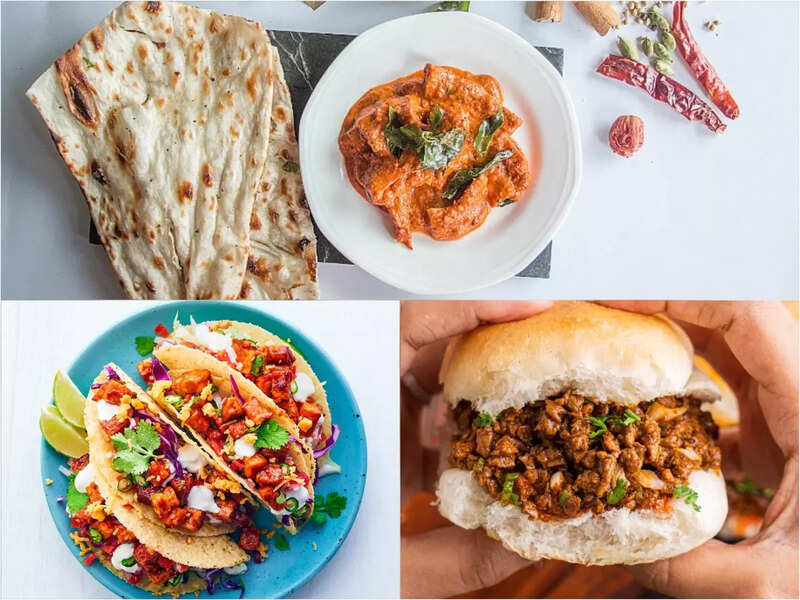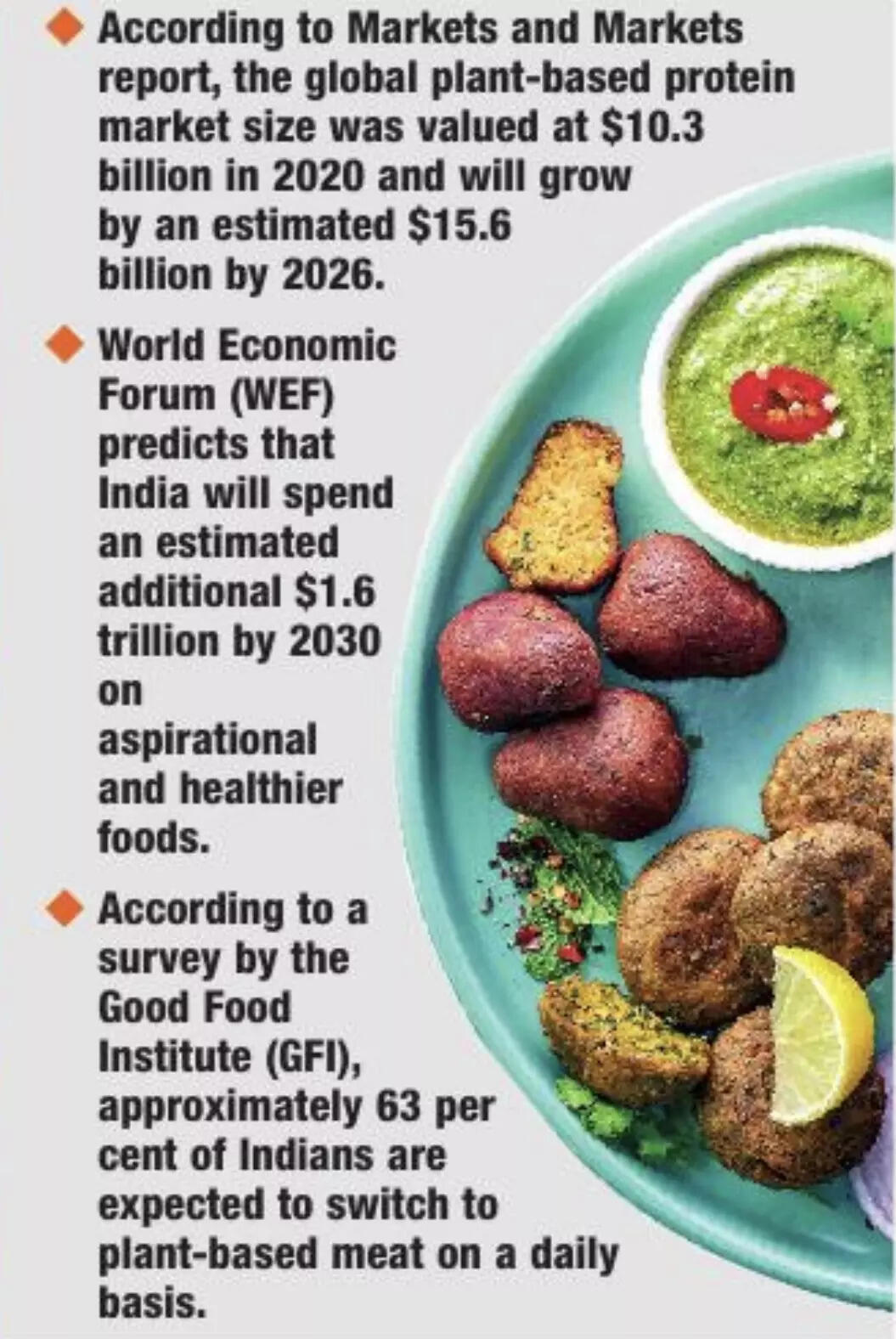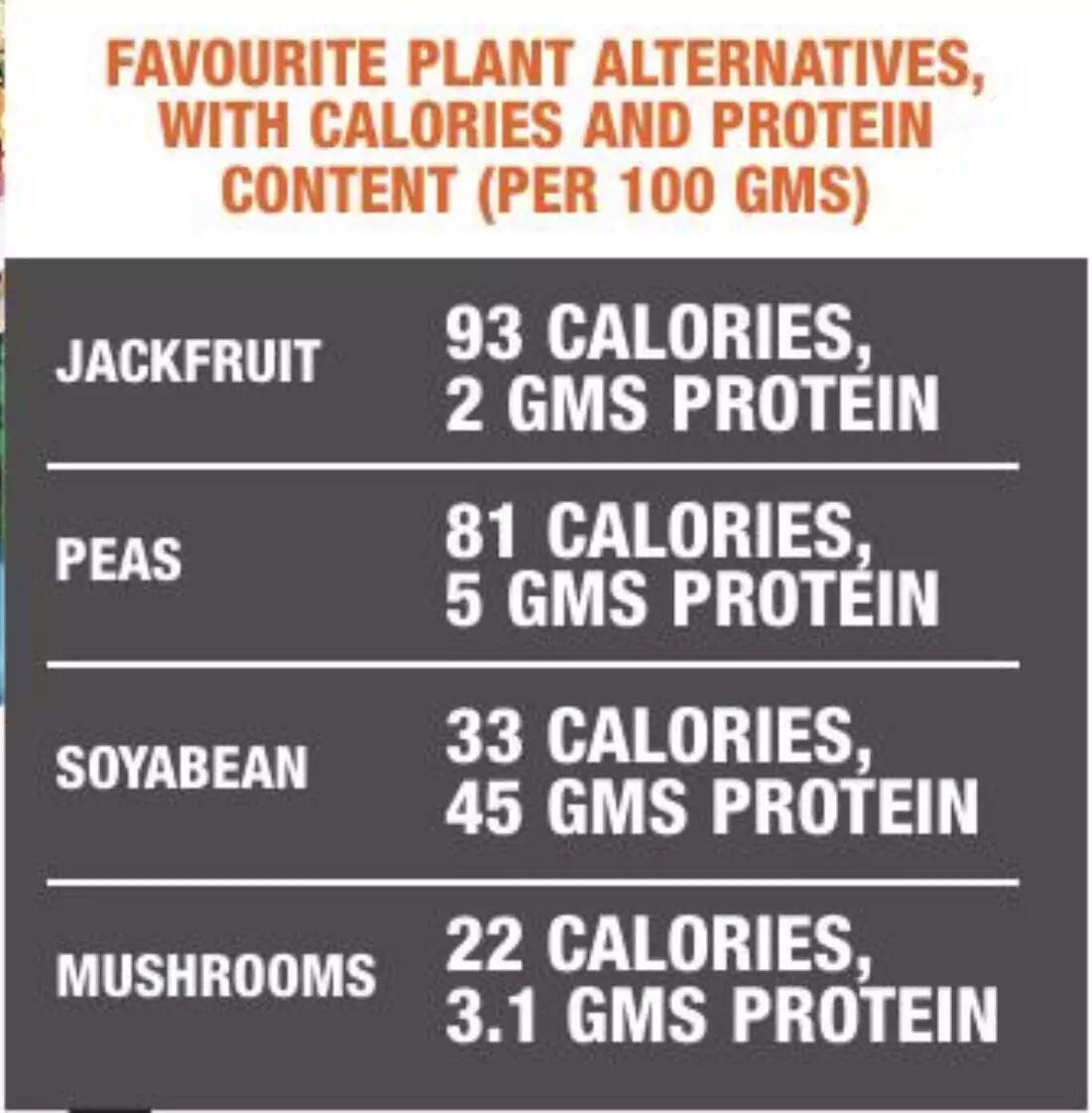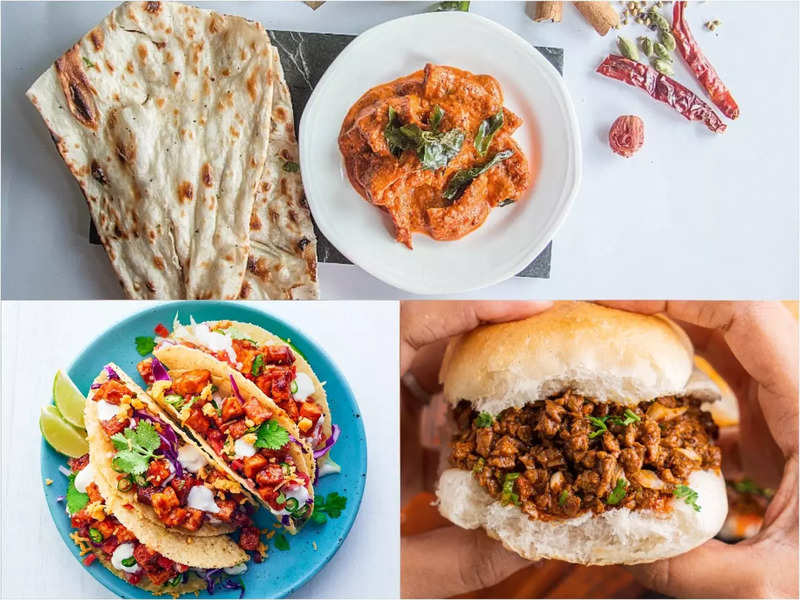
Plant-based meat alternatives are having their moment in India right nowPlant-based meat alternatives are having their moment in India right now. With mushrooms, peas, jackfruits and tempeh finding their way into kebabs, burger patties, biryani, keema and curries – plant-based diet has moved on from just nuts and leafy greens. From gourmet chefs and cloud kitchens, to regular household cooking – plant-based meats have found a place on the kitchen shelves, ready to be steaked, minced and made into tikkas in tandoor.
A paradigm shift
The numbers indicate a huge paradigm shift towards plant-based meat (PBM) alternatives in India. So much so, that companies producing these alternatives are seeing about 100% growth in demand. Co-founder of Udaipur-based GoodDot, Abhishek Sinha shares, “Earlier we used to have 100% year on year growth, but since last year we are witnessing a 250% growth. The numbers reflect the interest of consumers.” Likewise, founder and CEO of Goa-based Wakao Foods, Sairaj Dhond adds, “The buzz around PBM is such that eateries, gourmet hotels and cafes are looking to introduce either separate menus with these products, or dishes and festival weeks comprising different cuisines that can use these alternatives.”

‘Healthy alternatives, environment consciousness are top reasons for the shift’
While hardcore non-vegetarians still stick to their preferred meats, they are experimenting with textures and flavours of PBM along with vegetarians and vegans. However, health benefits of consuming these foods and sustainable eating have emerged as the top reasons for the shift towards these alternatives. Whole plant-based nutritionist Shalu Nijhwan says, “People are increasingly thinking of giving up meat and adopting plant-based alternatives because of the health benefits like consuming fewer calories, avoiding bad fats, increased immunity, better heart health and regulated blood pressure. My husband who had an autoimmune condition could also go off steroids and heavy medicines after switching to these alternatives.”
Once we started making PBM dishes, we realised that even after eating bigger portions we felt light. We never felt too full or fatigued like we used to after, say, a plate of chicken curryShalu Nijhwan, whole plant-based nutritionist and chef
Increase in awareness about the environmental impact of these foods is another contributing factor. “Stats have also shown that the greenhouse gas emissions from raising livestock for meat products have been higher than automobile pollution. Plus, the amount of land and water resources involved is huge. This has been a great factor that is making people shift towards PBM, especially among the age group of 25–35-year-olds who are more invested in sustainability,” says co-founder of Shaka Harry, Anoop Haridasan.
Jackfruits, peas, soyabean and mushrooms take the centre stage
Among the horde of options – synthetic and natural – available for plant-based meat alternatives, natural fruits, pulses and vegetables like jackfruits, soyabean, peas, mushrooms have emerged as the favourites for the highest level of similarity with meat, in terms of taste and textures. “For someone who is looking for the exact taste and texture of meat, they may never make peace with the alternatives. But people who understand that the closest a food can come to tasting like meat without additives and preservatives, love to have nuggets, kebabs, tikkas, minced meat made from jackfruit, pea extracts and mushrooms,” says Dhond. On the other hand, chefs like Shalu have found more natural alternatives like making fish curry with yam, boiled egg with coconut milk and miso.

Continue Reading: https://timesofindia.indiatimes.com/life-style/food-news/plant-based-meat-takes-centre-stage-on-the-indian-platter/articleshow/87829355.cms






